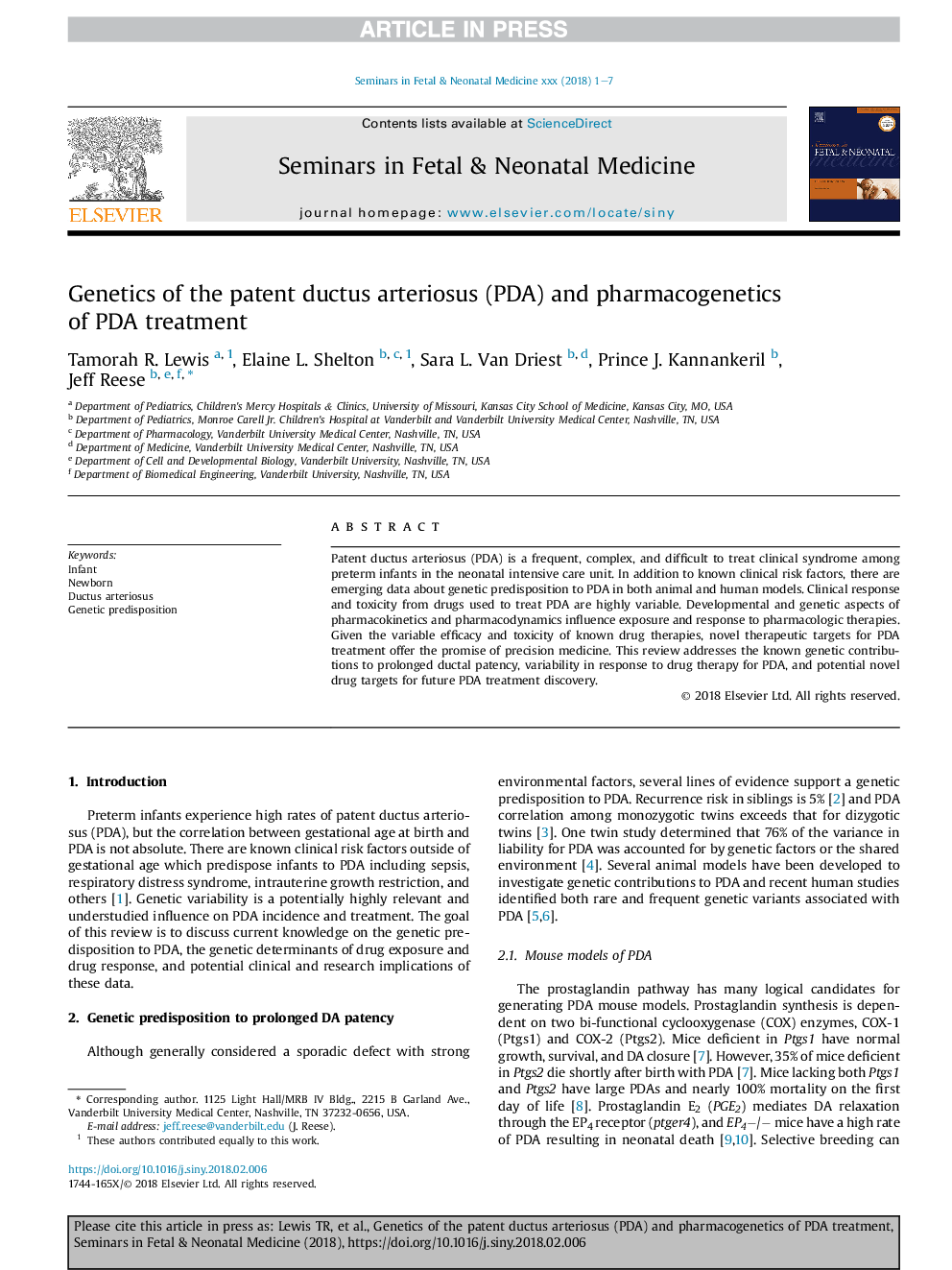| Article ID | Journal | Published Year | Pages | File Type |
|---|---|---|---|---|
| 8784264 | Seminars in Fetal and Neonatal Medicine | 2018 | 7 Pages |
Abstract
Patent ductus arteriosus (PDA) is a frequent, complex, and difficult to treat clinical syndrome among preterm infants in the neonatal intensive care unit. In addition to known clinical risk factors, there are emerging data about genetic predisposition to PDA in both animal and human models. Clinical response and toxicity from drugs used to treat PDA are highly variable. Developmental and genetic aspects of pharmacokinetics and pharmacodynamics influence exposure and response to pharmacologic therapies. Given the variable efficacy and toxicity of known drug therapies, novel therapeutic targets for PDA treatment offer the promise of precision medicine. This review addresses the known genetic contributions to prolonged ductal patency, variability in response to drug therapy for PDA, and potential novel drug targets for future PDA treatment discovery.
Related Topics
Health Sciences
Medicine and Dentistry
Obstetrics, Gynecology and Women's Health
Authors
Tamorah R. Lewis, Elaine L. Shelton, Sara L. Van Driest, Prince J. Kannankeril, Jeff Reese,
